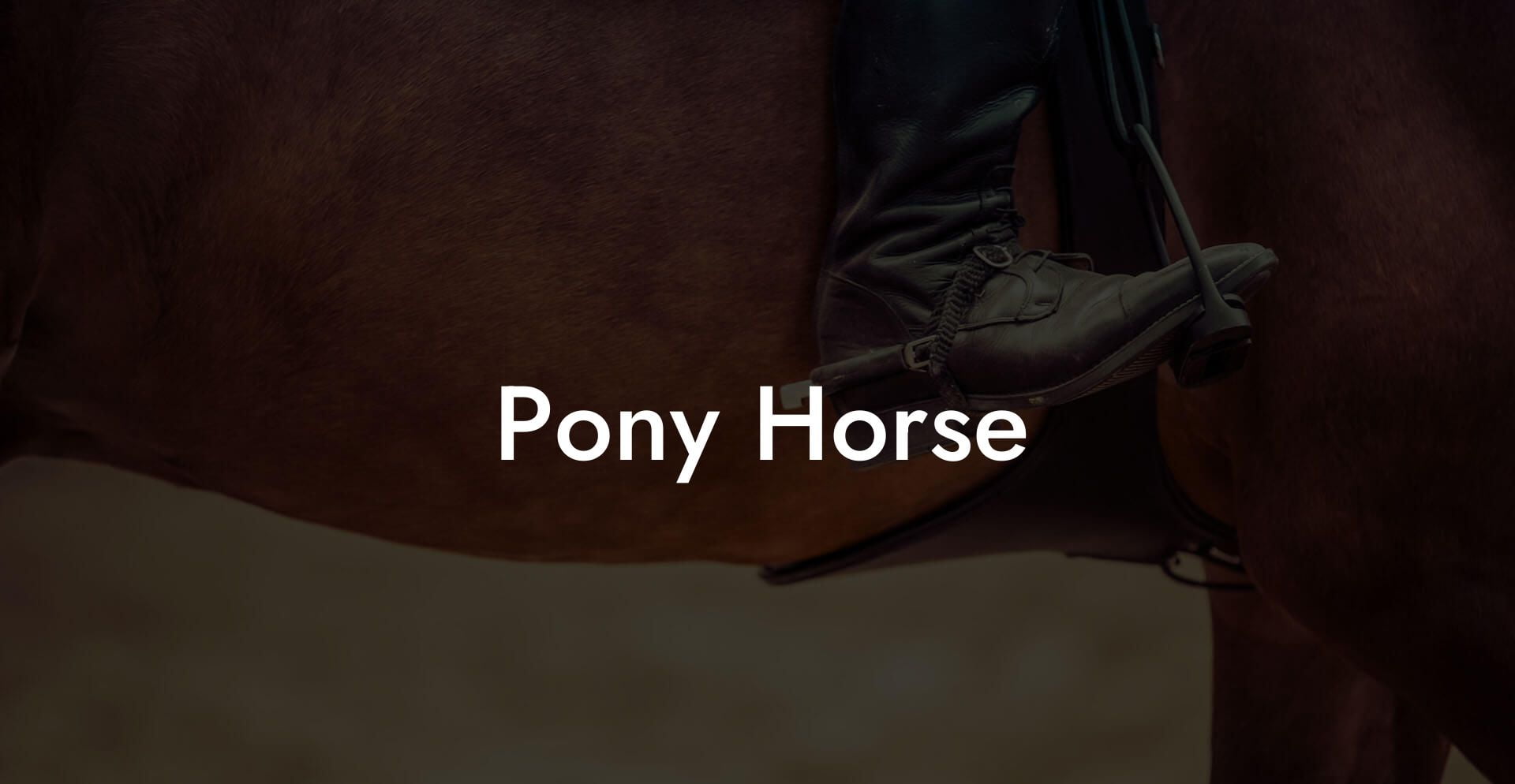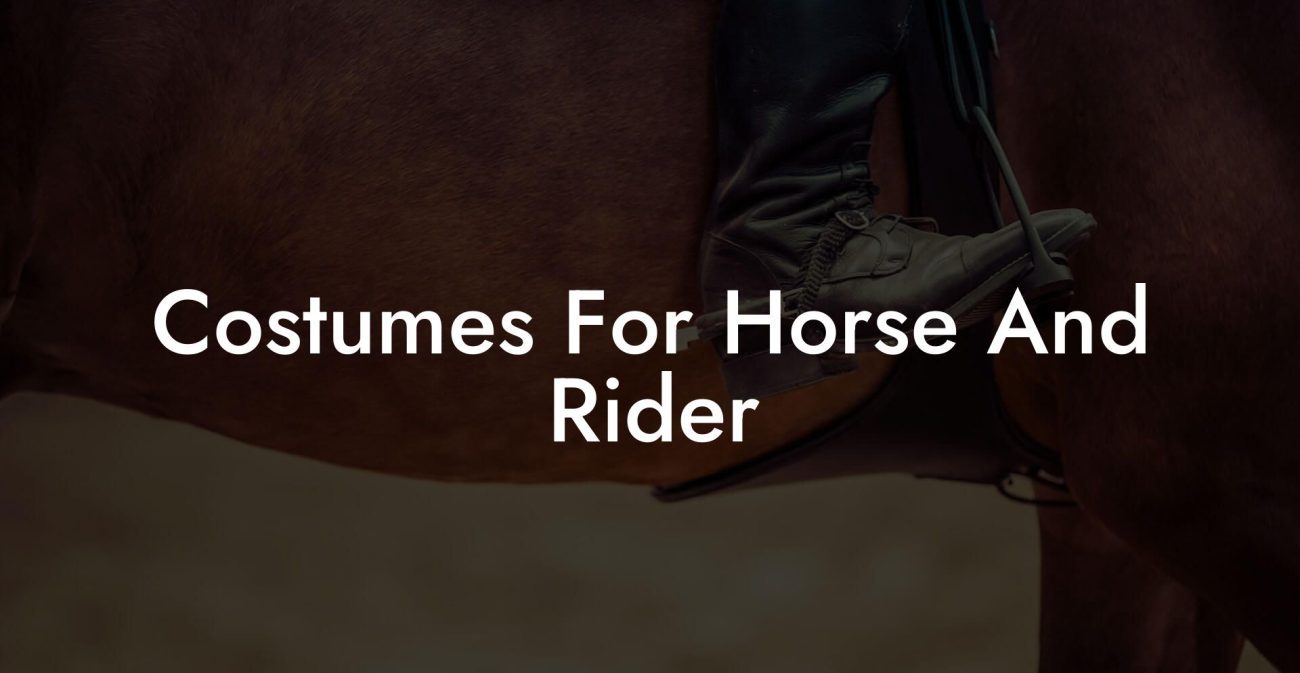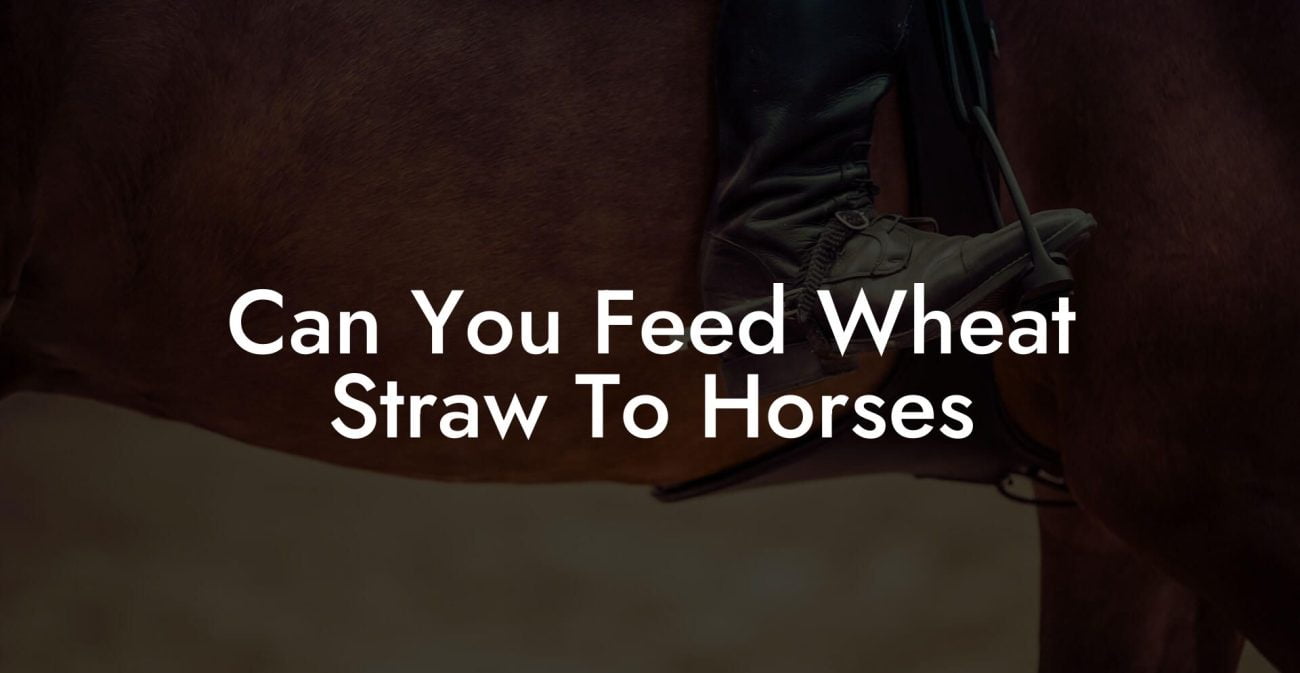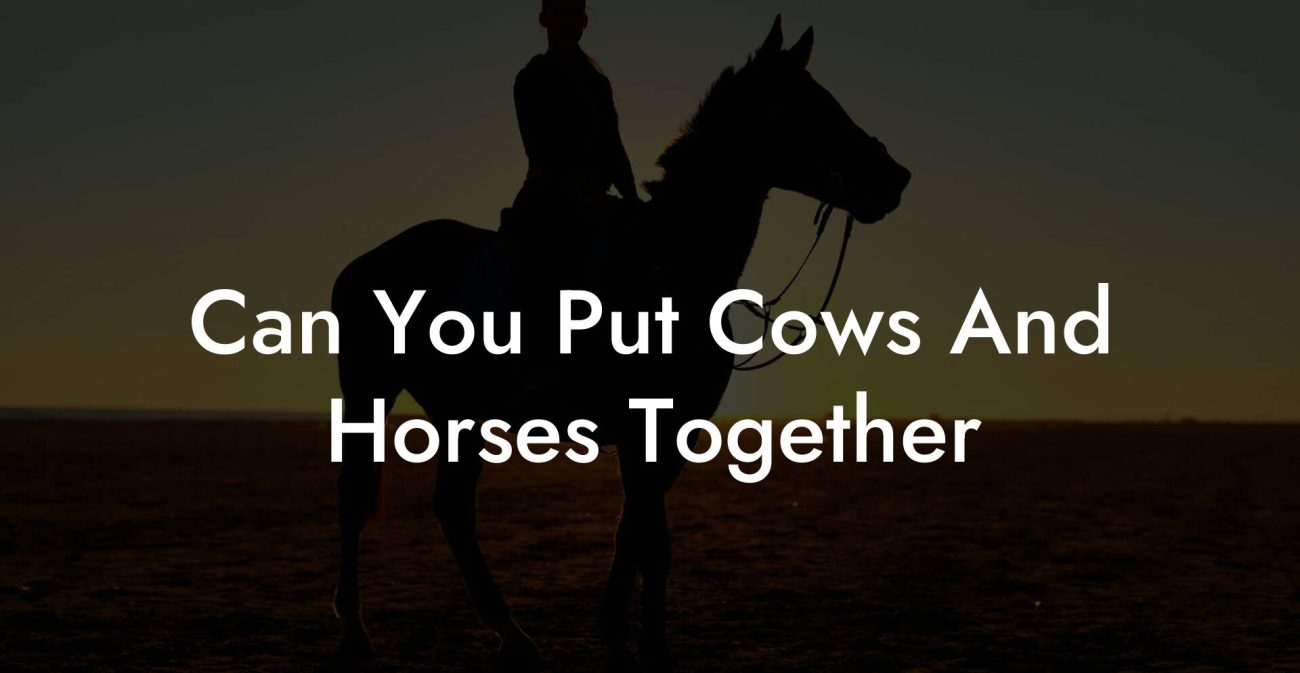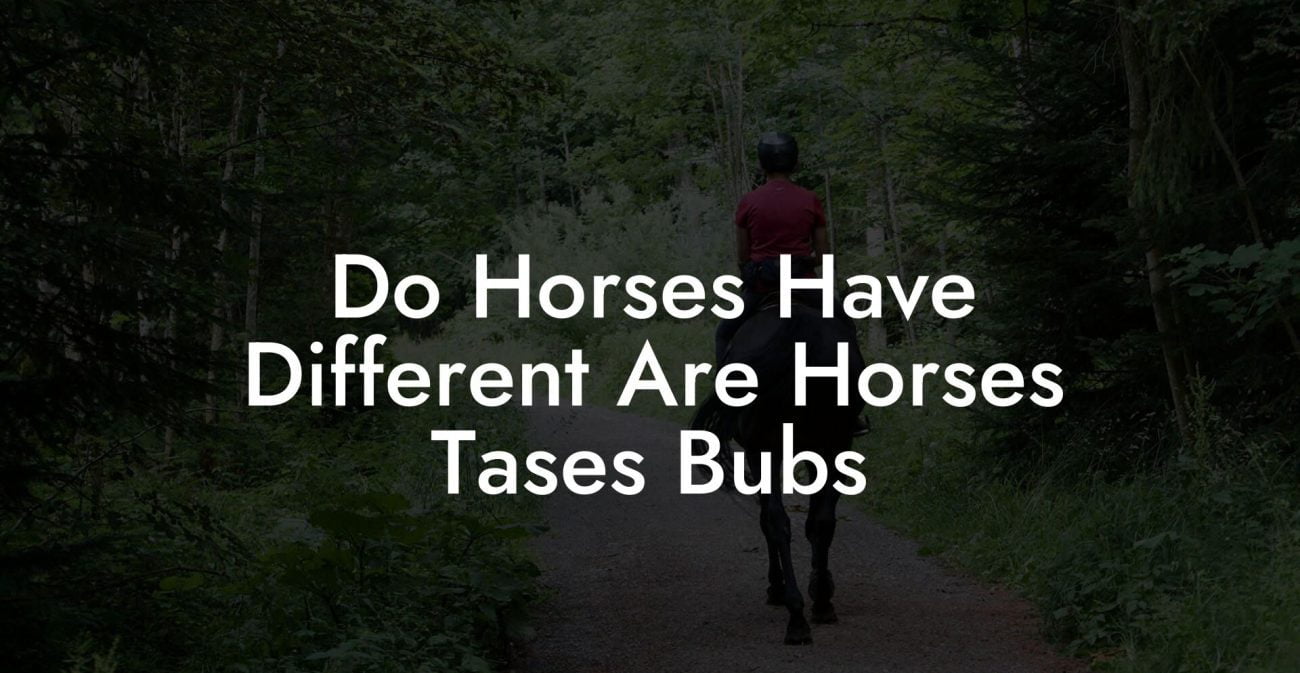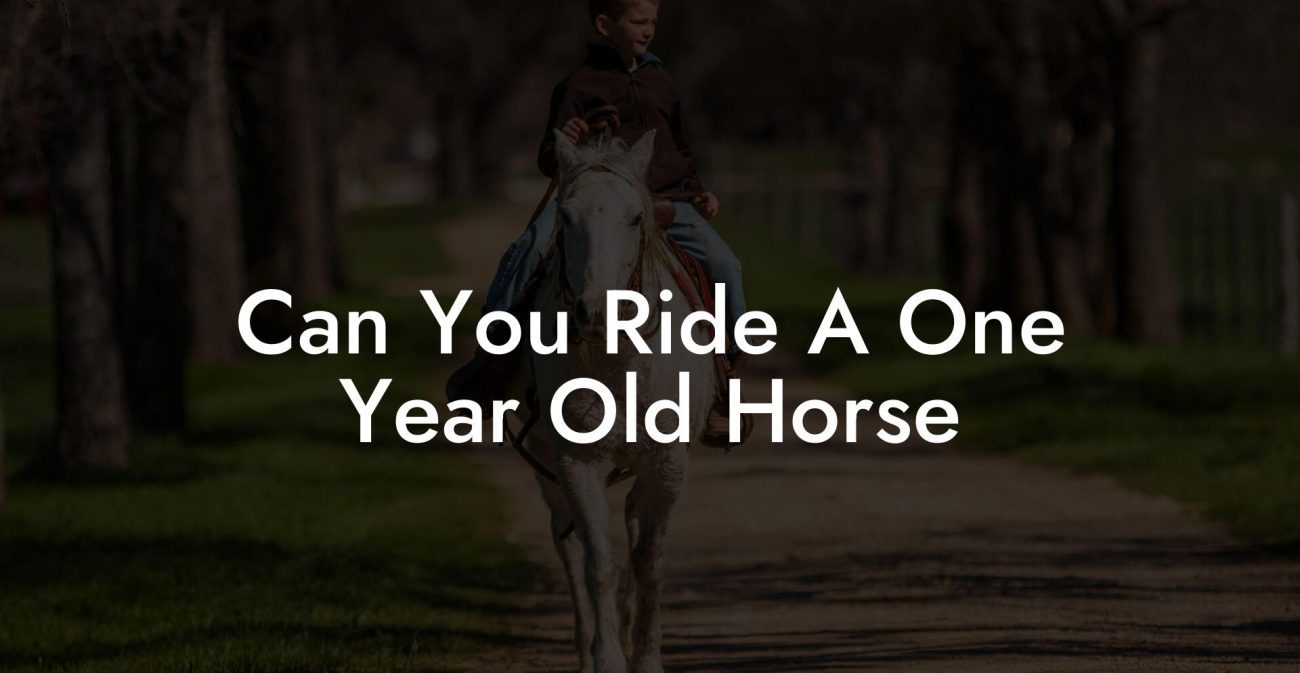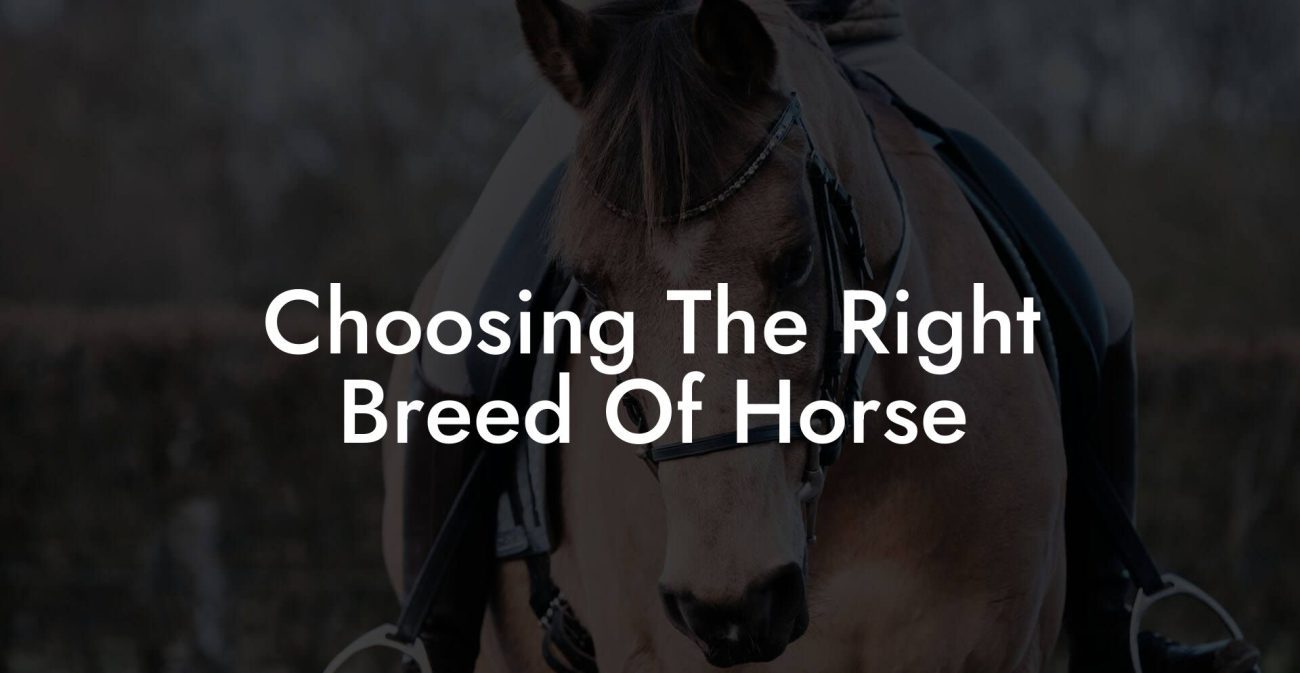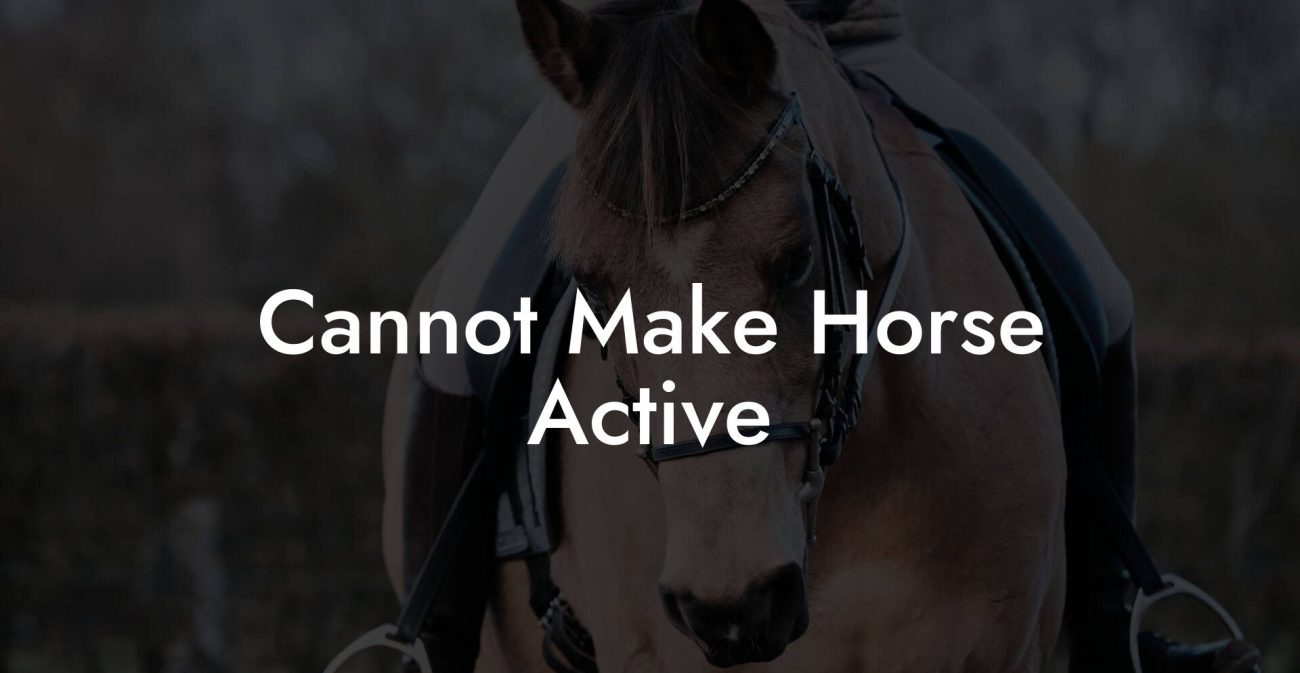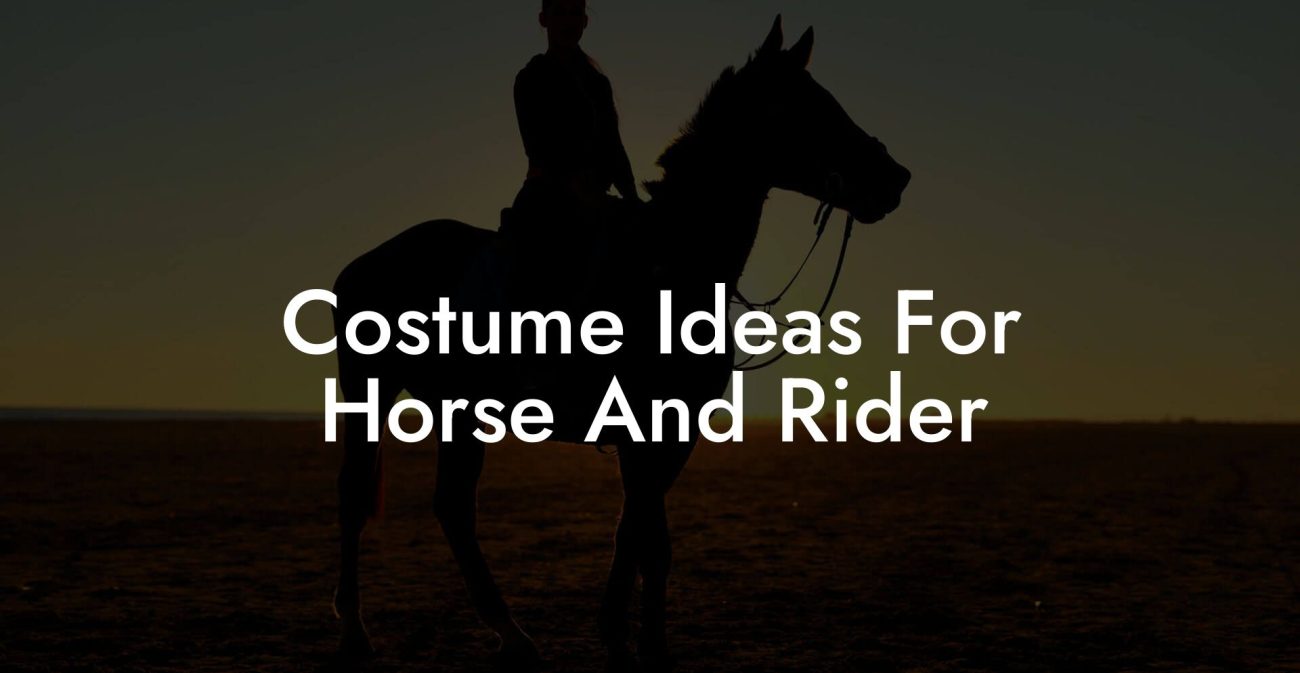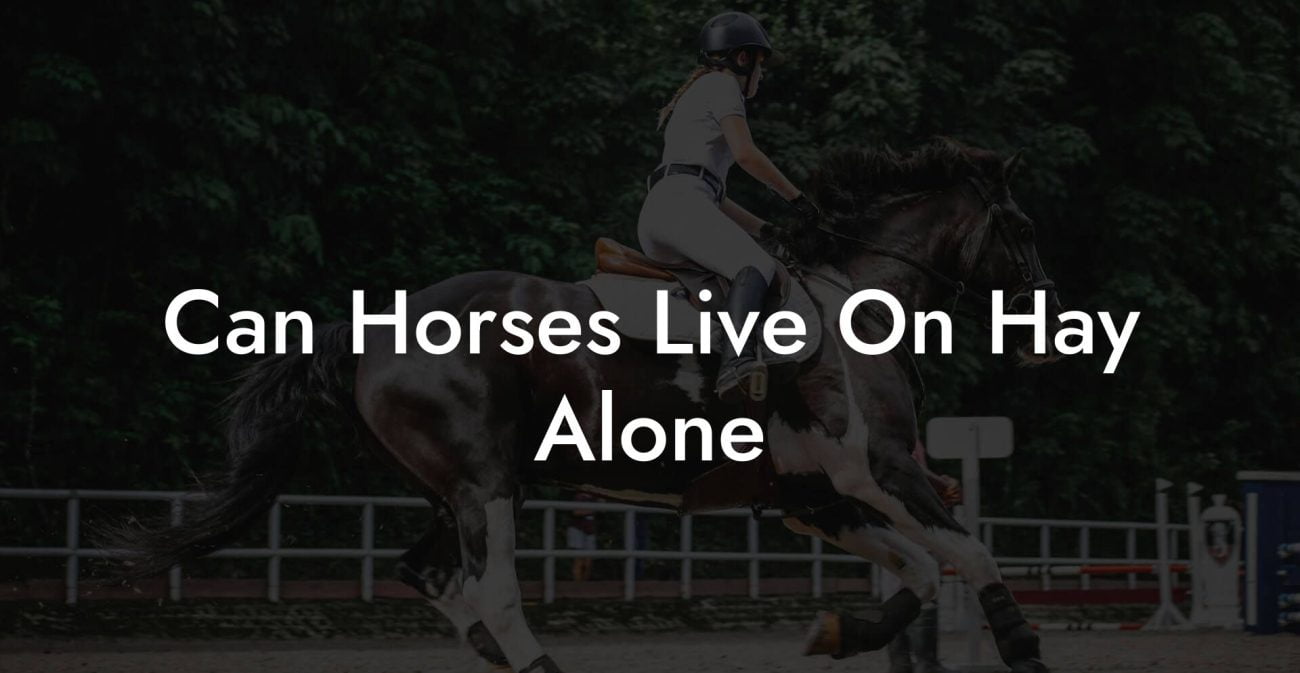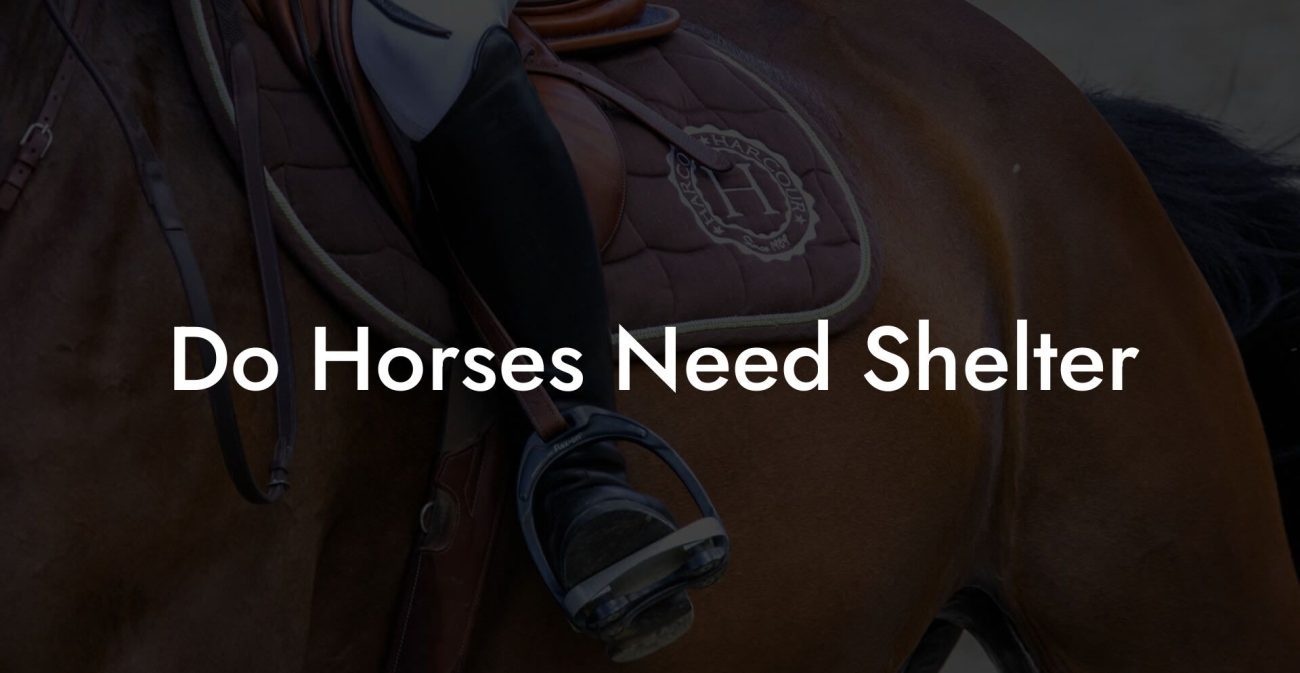From the very first trot into their world, pony horses embody a magical blend of spirited charm and endearing character that instantly captivates anyone with a penchant for equine companions. Whether you're an urban dweller who’s always dreamed of a touch of country magic or a free-spirited Gen-Z explorer on the hunt for hands-on experiences with these pint-sized powerhouses, caring for a pony horse isn’t just a hobby, it’s a lifestyle. In this guide, we’re diving deep into every facet of pony horse care, blending practical advice with a dash of humor and plenty of insider tips to help you forge a real connection with your equine friend.
Quick Links to Useful Sections
- The Allure of Pony Horses: More Than Just a Miniature Equine
- Understanding Your Pony Horse: Behavior, Physiology, and Unique Needs
- Essential Pillars of Pony Horse Care
- The Nutritional Blueprint: Feeding Your Pony Horse Right
- Understanding Their Digestive System
- Monthly Meal Planning
- Treats and Snacks
- The Art of Grooming: Bonding Through Brushing and Beyond
- Daily Grooming Routine
- Bathing: When and How
- Hoof Care
- Creating a Safe and Inviting Home: Stable and Pasture Management
- Designing the Stable
- Pasture Management
- Cleanliness and Maintenance
- Training and Exercise: Keeping Your Pony Horse Active and Engaged
- Daily Exercise Routines
- Riding Lessons for Novices and Pros
- Behavioral Training and Social Interaction
- Healthcare Essentials: Vet Visits, Vaccinations, and Daily Check-Ups
- Regular Veterinary Check-Ups
- Hoof and Dental Care
- First Aid and Emergency Preparation
- The Intersection of Tradition and Innovation: Modern Tools in Pony Horse Care
- Digital Health Monitors
- Mobile Apps and Digital Records
- Innovative Stable Designs
- Real Stories from the Field: Transformative Journeys in Pony Horse Care
- The Tale of Luna: From Shy Foal to Confident Companion
- The Transformation of Duke: Balancing Nutrition and High-Energy Dynamics
- Bella’s Journey: Healing Through Holistic Approaches
- Community and Resources: Your Next Steps in Pony Horse Mastery
- Join Equine Forums and Social Media Groups
- Attend Workshops and Equine Fairs
- Consult with Professionals
- Resources for Further Reading
- Mapping Out Your Personalized Pony Horse Care Plan
- Step 1: Conduct a Thorough Health Assessment
- Step 2: Set Clear, Achievable Goals
- Step 3: Curate a Balanced Routine
- Step 4: Implement and Monitor
- Step 5: Engage in Ongoing Learning
- Pony Horse Care FAQs: Your Burning Questions Answered
- Your Journey to a Thriving Pony Horse Future
The Allure of Pony Horses: More Than Just a Miniature Equine
Pony horses aren’t merely scaled-down horses; they are a fusion of beauty, strength, and sass. Known for their sturdy builds and big personalities, pony horses have charmed riders and onlookers for centuries. With their manageable size, they’re perfect for beginners and seasoned equestrians alike. But beyond the obvious advantages, pony horses offer emotional support, companionship, and an endless dose of fun!
In today’s fast-paced world, where digital distractions often rule our attention, the tactile, soulful connection with a pony horse offers an escape rooted in nature and authenticity. Caring for a pony horse means immersing yourself in an experience that combines hands-on activity, physical exercise, and a chance to chill out with a living symbol of freedom and resilience.
Whether you’re grooming them in a sunlit pasture, training them on a breezy trail, or simply sharing a quiet moment while they gnaw on a crunchy carrot, pony horse care is about building a partnership that celebrates every quirky trait, from their boundless energy to their surprisingly affectionate nuzzles.
Understanding Your Pony Horse: Behavior, Physiology, and Unique Needs
Before diving into the practical tips for care, it’s crucial to understand what makes pony horses tick. Their size might make them seem like miniature versions of larger horses, but they have unique physiological and behavioral nuances that call for specialized care.
Personality Plus: Pony horses are renowned for having vibrant, spirited personalities. They’re often more interactive and sometimes cheekier than their larger relatives. This means that building trust, engaging them in play, and setting clear boundaries are key.
Sturdy Frame: Despite their smaller stature, pony horses are robust and resilient. Their dense bone structure demands a diet and exercise routine tailored to their energetic metabolism. Their smaller frame also makes them more agile, perfect for complex maneuvers in training sessions.
Social Creatures: Much like us, pony horses thrive on social interaction. They form strong bonds with both their herd and their human caregivers. Understanding these social needs will not only help in training but will also enhance their overall well-being.
In a nutshell, knowing your pony horse’s personality and physiognomy sets the stage for a caring routine that respects their quirks while helping them remain healthy, happy, and ready for any adventure.
Essential Pillars of Pony Horse Care
Caring for a pony horse might seem overwhelming at first glance, but breaking it down into core components can help keep things organized and stress-free. Let’s explore the critical pillars that form the backbone of pony horse care.
- nutrition and Feeding: Just like us, pony horses need a balanced diet that fuels their lively antics. We’ll dig into what to feed, how much to feed, and how to identify the difference between a snack and a full-course meal.
- Grooming and Hygiene: Regular grooming isn’t just about keeping your pony looking pristine, it’s a bonding ritual that promotes healthy skin, prevents disease, and can even be surprisingly therapeutic.
- stable and Environment Management: Your pony horse’s home should be a safe, clean, and inspiring environment. Think of it as designing a cool hangout spot where they get to relax, play, and feel completely at home.
- Exercise, Training, and Play: From routine exercise to structured training sessions, keeping your pony active is key to both mental and physical health. And yes, playtime is not optional, it’s essential!
- Healthcare and Geriatrics: Routine check-ups, vaccinations, deworming, hoof care, and dental maintenance all play starring roles in ensuring that your pony stays in top condition.
- Mental and Emotional Wellbeing: Just like humans, pony horses have moods. Their mental health includes stress management, establishing trust, and even a bit of playful enrichment to keep their spirit soaring.
By mastering these pillars, you’re not only ensuring your pony horse remains healthy and vibrant, but you’re also investing in a bond that transcends basic pet care, a bond that’s rooted in mutual respect and shared adventures.
The Nutritional Blueprint: Feeding Your Pony Horse Right
You’ve got your pony horse’s personality down, now let’s talk food! Feeding your pony horse isn’t just about tossing them a carrot every now and then; it’s a carefully orchestrated routine to fuel their energy, support growth, and prevent dietary issues.
Understanding Their Digestive System
Pony horses have a refined digestive tract that’s highly sensitive to changes in diet. Unlike larger breeds, their smaller gut means that portion control is critical. A balanced mix of forage (like hay and pasture grass) and concentrates (oats, barley, or specially formulated feeds) is ideal.
Their digestive system is built for slow and steady nutrient absorption. Sudden changes in feed, or overfeeding, can lead to colic or laminitis, a painful, sometimes life-threatening condition. That’s why a gradual transition between different types of feed is key.
Monthly Meal Planning
Create a routine where high-quality hay forms 90% of their diet, supplemented by a smaller portion of concentrates based on their energy expenditure. During seasons when the grass is lush, reduce concentrate levels accordingly. In colder months when the energy demand increases, consider additional feeds that supply extra calories.
Supplements like vitamins and minerals might be necessary depending on your pony’s age, workload, and overall health. Consult with a vet to figure out the perfect formula for your pony.
Treats and Snacks
When it comes to treats, moderation is the name of the game. Whether it’s carrots, apples, or even specially made pony treats, these snacks are ideal for training rewards and bonding sessions. However, remember that even healthy treats should not replace their balanced diet.
Innovative feeders and slow-feed treats can also help in preventing boredom and overeating, keeping your pony mentally engaged while they chew.
In essence, a nutritious diet is a cornerstone of long-term health for your pony horse. It’s all about keeping it simple, natural, and consistent.
The Art of Grooming: Bonding Through Brushing and Beyond
Grooming is about more than just a good-looking mane, it's a ritual for bonding, relaxation, and ensuring your pony horse’s overall health. Regular grooming sessions promote clean skin, reduce the risk of infections, and give you a chance to check for any anomalies.
Daily Grooming Routine
A thorough grooming routine begins with a good brushing session. Start by removing loose hair and debris using a curry comb and a stiff brush. This not only gets rid of dirt but also stimulates circulation.
Don’t forget to clean the mane and tail! A dematting comb is essential for preventing tangles, especially if your pony spends a lot of time outdoors.
Bathing: When and How
While pony horses don’t need daily baths, a periodic wash can help maintain a clean coat. Use horse-specific shampoos that nourish the skin without stripping essential oils. Always remember to rinse thoroughly, and dry the coat completely to prevent damp-related skin issues.
Hoof Care
Hoof care is one of the non-negotiable aspects of pony horse management. Regular cleaning and inspection of hooves help catch issues like thrush or cracks before they become serious. Many pony owners schedule farrier visits every 6-8 weeks to keep the hooves trimmed and healthy. If you notice any abnormalities, it’s key to consult a professional right away.
Grooming is as much about physical health as it is about emotional intimate bonding. Spending quality time during grooming sessions deepens that unspoken communication between you and your pony horse.
Creating a Safe and Inviting Home: Stable and Pasture Management
Your pony horse’s living space is their castle. Whether you’re managing a full-scale stable or a small urban paddock, ensuring the environment is safe, clean, and stimulating is key to their wellbeing.
Designing the Stable
The stable should be well-ventilated, dry, and spacious enough to allow your pony horse to move around comfortably. Use non-slip flooring and ensure there are safe, accessible areas for feeding and resting. Regular cleaning routines prevent the buildup of dust, mold, and bacteria.
Incorporate natural light and enrich the environment with elements like soft bedding, water troughs, and designated areas for play. The design should balance functionality with comfort to keep your pony horse both secure and content.
Pasture Management
When it comes to pasture, the saying “grass is always greener” holds true, if managed correctly. Regular rotation of grazing areas prevents overgrazing and ensures the grass remains nutritious. Safe fencing and ample shade are crucial for providing shelter during hot summer days.
Incorporate natural windbreaks and water sources to mimic their natural habitat. A well-planned pasture not only supports physical health but also provides mental stimulation, allowing your pony horse to explore and socialize in a secure outdoor space.
Cleanliness and Maintenance
Frequent clean-ups in both the stable and pasture minimize health hazards like parasites and respiratory issues. A clean environment reduces the risk of infections and creates a more enjoyable space for your pony horse to thrive.
Investing time and effort into your pony horse’s living space pays off in their overall health, happiness, and longevity.
Training and Exercise: Keeping Your Pony Horse Active and Engaged
A pony horse isn’t just a static beauty, they’re built for movement and adventure. Regular exercise, structured training, and a sprinkle of playful activities help your pony horse develop strength, discipline, and a love for learning.
Daily Exercise Routines
Daily exercise keeps your pony fit and agile. Whether it’s a morning trot around the pasture or a structured session of light riding, consistency is key. Warm-up routines, gentle stretching, and cool-down periods should all be a part of your exercise regimen.
Incorporate fun activities, such as obstacle courses or group play sessions with other equines, to maintain their interest and prevent boredom. Remember, an engaged pony is a happy, healthy pony.
Riding Lessons for Novices and Pros
Riding a pony might seem like child’s play, but it requires balance, coordination, and a gentle touch. For beginners, start with slow, intuitive lessons that build trust and form the foundation for more advanced techniques. More experienced riders can experiment with dressage, trail riding, or even slight jumps if your pony is up for it.
Emphasizing communication can transform training sessions into a fun, mutual learning experience. Recognize their cues and allow them to express themselves, after all, training is as much about reading your pony’s body language as it is about teaching them specific skills.
Behavioral Training and Social Interaction
Effective training goes beyond mere commands. It’s about shaping behavior through rewards, consistency, and understanding personality quirks. Use treats and gentle corrections to guide them towards desired actions, and always balance discipline with positive reinforcement.
Social interactions with other horses help build their confidence and reduce anxiety. A well-rounded exercise program that includes plenty of playtime in a herd setting can boost both physical endurance and mental clarity.
Healthcare Essentials: Vet Visits, Vaccinations, and Daily Check-Ups
Like any cherished member of your crew, your pony horse needs regular healthcare to stave off illnesses and maintain peak physical performance. A proactive approach to healthcare not only prevents crises but also extends their overall quality of life.
Regular Veterinary Check-Ups
Establish a schedule with a trusted equine veterinarian who understands the unique needs of pony horses. Regular check-ups can catch potential issues early, be it dental problems, hoof abnormalities, or underlying health conditions.
Seasonal vaccinations, deworming treatments, and blood tests form part of an ongoing healthcare routine, ensuring your pony stays in the pink of health year-round.
Hoof and Dental Care
As emphasized earlier, hoof care is vital. Keep a close eye on wear patterns, cracks, or any signs of discomfort. Equally important is dental care, a pony’s chewing efficiency affects their digestion and overall energy levels. Regular dental examinations help prevent painful issues down the road.
First Aid and Emergency Preparation
Accidents can happen, even to the most well-cared-for pony. Keep a first aid kit stocked with essentials like antiseptics, bandages, and anti-inflammatory meds. Being prepared for minor cuts, bruises, or environmental hazards can make all the difference in ensuring a speedy recovery.
Educate yourself on emergency procedures and have your veterinarian’s contact details handy at all times.
The Intersection of Tradition and Innovation: Modern Tools in Pony Horse Care
As technology continues to play a pivotal role in our daily lives, modern tools are increasingly becoming part of the equine care toolkit. From wearable tech that monitors health metrics to innovative stable designs, these advancements complement age-old wisdom to give your pony horse a top-notch quality of care.
Digital Health Monitors
Imagine having a wearable device on your pony horse that tracks their vital signs, activity levels, and even their stress indicators. These smart gadgets can alert you to subtle changes in health before they escalate into bigger issues, bridging the gap between traditional observation and high-tech monitoring.
Mobile Apps and Digital Records
Gone are the days of bulky paper records. Mobile apps allow you to log feeding schedules, vaccination dates, and exercise routines, offering real-time data to both you and your vet. This integration of technology into everyday care routines ensures that every aspect of your pony’s health is both monitored and preserved.
Innovative Stable Designs
Today’s stable designs incorporate eco-friendly materials, energy-efficient layouts, and advanced ventilation systems that create a safe haven for your pony horse. These modern stables aim to replicate natural conditions while providing easy maintenance and enhanced security.
Embracing modern technology doesn’t mean letting go of traditional care practices, it means enhancing them with tools that allow you to be a more attentive and proactive caregiver.
Real Stories from the Field: Transformative Journeys in Pony Horse Care
Theory meets reality in the inspiring stories of pony horse enthusiasts who transformed their approach to care and witnessed truly heartwarming results. Here are a few journeys that showcase the power of dedication, innovation, and a whole lot of love.
The Tale of Luna: From Shy Foal to Confident Companion
Luna was a timid pony horse with a heart full of potential but weighed down by early fears and a restrictive environment. A dedicated caregiver introduced her to a routine that combined structured training, gentle grooming rituals, and plenty of playtime in a vibrant pasture. Slowly but surely, Luna began to blossom. With patient guidance and an environment that prioritized mental and physical enrichment, Luna transformed into a confident, joyful companion whose spirited trot was the talk of the stable.
The Transformation of Duke: Balancing Nutrition and High-Energy Dynamics
Duke, a high-energy pony horse with a reputation for mischief, was notorious for his boundless enthusiasm and occasional outbursts. His owner revamped his diet, shifting to nutrient-balanced feeds, optimizing his grazing routine, and incorporating interactive feeding techniques that slowed down his energy intake. Combined with a customized exercise program that matched his vivacity, Duke’s behavioral issues gradually melted away. In his newfound balance, Duke became both a stellar companion and a shining example of what tailored nutrition and exercise can achieve.
Bella’s Journey: Healing Through Holistic Approaches
Bella’s story is a tribute to the blend of modern veterinary science and traditional natural care. After experiencing repeated bouts of mild colic and lethargy, her caretaker adopted a holistic approach that included a revised feeding schedule, regular herbal supplements recommended by a trusted vet, and daily sessions of gentle exercise that doubled as stress relief. Over time, Bella emerged as a vibrant and active pony, proving that a combination of technology, holistic nutrition, and heartfelt human interaction can work wonders.
These transformative journeys remind us that every pony horse is a unique individual. Tailoring a care routine that respects their personality and specific needs not only ensures their health but also deepens the bond between you and your equine friend.
Community and Resources: Your Next Steps in Pony Horse Mastery
The journey to becoming a true pony horse aficionado doesn’t have to be a solo ride. Today, countless online communities, specialized blogs, equine care centers, and local clubs are at your fingertips. Here’s how to engage further:
Join Equine Forums and Social Media Groups
Online forums and social media groups offer a treasure trove of experiences from fellow pony horse enthusiasts. Whether you’re seeking advice on overcoming a specific grooming challenge or sharing success stories from innovative training methods, these communities are abuzz with practical tips and endless inspiration.
Attend Workshops and Equine Fairs
Look out for local workshops, equine fairs, and seminars dedicated to pony horse care. These events not only offer hands-on training experiences but also provide opportunities to meet industry experts, discover the latest products, and connect with a like-minded community.
Consult with Professionals
If you’re serious about stepping up your care routine, consider booking a consultation with an equine nutritionist, a certified groomer, or a professional trainer who specializes in pony horses. Their expert insights can elevate your approach to care, ensuring you’re ahead of the curve in all things pony-related.
Resources for Further Reading
Check out top-rated blogs, YouTube channels, and online courses that focus on equine well-being. From detailed guides on stable design to cutting-edge research on equine health technology, the more you learn, the better you can care for your pony horse.
With these resources and a supportive community by your side, your journey to mastering pony horse care is only just beginning. Embrace every opportunity to learn and grow, and soon you’ll be blazing your own trail in the equine world.
Mapping Out Your Personalized Pony Horse Care Plan
Every pony horse is unique, and your care plan should reflect that individuality. Designing a personalized plan involves assessing your pony’s current needs, understanding their temperament, and aligning your daily routines with their lifestyle. Here’s a step-by-step blueprint to get you started:
Step 1: Conduct a Thorough Health Assessment
Start by consulting with an equine veterinarian to get a comprehensive health check-up. Document details like weight, coat condition, hoof symmetry, and any behavioral quirks. This baseline will help in tailoring everything from nutrition to exercise.
Step 2: Set Clear, Achievable Goals
Identify what you want to achieve with your pony horse, be it improved physical fitness, enhanced grooming routines, or better behavior during training sessions. Setting clear milestones helps keep you and your equine companion motivated.
Step 3: Curate a Balanced Routine
Incorporate all elements of care, nutrition, grooming, exercise, and mental enrichment, into a cohesive daily plan. Detail out feeding times, outdoor play sessions, grooming appointments, and even digital check-ins with your vet. Use scheduling apps or a simple planner to stay organized.
Step 4: Implement and Monitor
Start small and gradually build on the routine. Keep a journal tracking your pony’s reactions, mood, and physical condition. Adjust the plan as needed, ensuring that the routine remains flexible and responsive to your pony’s evolving needs.
Step 5: Engage in Ongoing Learning
Pony horse care is an ever-evolving field. Regularly update your knowledge through workshops, peer exchanges, and industry publications. The more informed you are, the better equipped you’ll be to tweak your plan for optimum results.
A personalized approach isn’t static, it evolves with time and experience. With clear goals, a balanced routine, and a commitment to continuous improvement, your care plan will help your pony horse thrive in every aspect of life.
Pony Horse Care FAQs: Your Burning Questions Answered
Here are some frequently asked questions that dive into the nitty-gritty aspects of pony horse care:
1. What makes pony horses different from regular horses?
Pony horses have a smaller, sturdier build, coupled with big personalities that often make them more energetic and personable. Their unique physiology requires diets and care routines tailored specifically to their size and metabolism.
2. How do I know if I’m feeding my pony horse correctly?
Monitoring your pony’s body condition, energy levels, and digestive health can help gauge if their diet is on point. It’s best to work closely with a veterinarian or equine nutritionist to develop a balanced feeding plan that meets their specific needs.
3. How often should I groom my pony horse?
Daily brushing is ideal for removing loose hair and dirt, while deeper grooming sessions (including mane and tail care) should be done several times a week. Regular hoof cleaning is essential to maintain overall hoof health.
4. What kind of exercise regimen is best for a pony horse?
A mix of daily walking, trotting, and play-based activities works well. Tailor the exercise routine to your pony’s age, energy level, and training goals. Routine check-ups with a trainer can help ensure you’re meeting their physical demands.
5. How important is a clean stable in pony horse care?
An immaculate living environment is absolutely vital. Regular cleaning and proper ventilation not only prevent diseases but also enhance your pony’s overall well-being and comfort.
6. Can modern technology really improve the health management of my pony?
Yes, modern health monitors and digital record systems can provide real-time feedback, track key health metrics, and alert you to potential issues early on, enhancing overall care.
7. How do I approach training if my pony seems unresponsive?
Be patient and assess if the training environment is too stressful. Integrate positive reinforcement, ensure rewards are consistent, and consider consulting with a professional trainer for tailored advice.
8. What are the signs of nutritional imbalance in a pony horse?
Look for symptoms like unusual weight loss or gain, changes in coat quality, digestive upset, and lethargy. A specialist can run tests to pinpoint deficiencies or excesses in your pony’s diet.
9. How often should I visit the veterinarian for a routine check?
A bi-annual check-up is standard; however, if your pony shows any signs of distress or behavioral changes, schedule a vet visit immediately.
10. Can I integrate homemade treats into my pony’s diet?
Absolutely, as long as the treats are nutritious and fed in moderation. Always consult with your veterinarian to ensure that new foods complement your pony’s overall diet.
Your Journey to a Thriving Pony Horse Future
Embracing the art of pony horse care means nurturing not just a pet, but a living, breathing partner in adventure. Each brush stroke, every measured bite of feed, and each joyful trot is a step towards a deeper bond and a healthier, happier pony. In this vibrant tapestry of daily rituals, technology meets time-honored traditions, forming a care routine that respects the uniqueness of your pony horse and elevates their natural exuberance.
This guide isn’t merely a list of dos and don’ts, it’s a manifesto for a lifestyle that celebrates the harmony between human and equine, where every moment is an opportunity to learn, laugh, and grow together. With informed care and a sprinkle of fun, you’re not just managing a routine, you’re curating a world where your pony horse thrives on every level, both physically and emotionally.
So, whether you’re a seasoned equestrian or just starting your journey with your first pony horse, let your heart lead the way. Embrace each day with fresh energy, a curious mind, and an unyielding passion for creating a life that’s as dynamic, spirited, and uniquely wonderful as your pony horse.
With every stride forward, you’re not only crafting a future of thriving health for your pony horse, but you’re also building memories that will last a lifetime. Here’s to a journey filled with adventure, compassion, and the undeniable magic of equine companionship!

